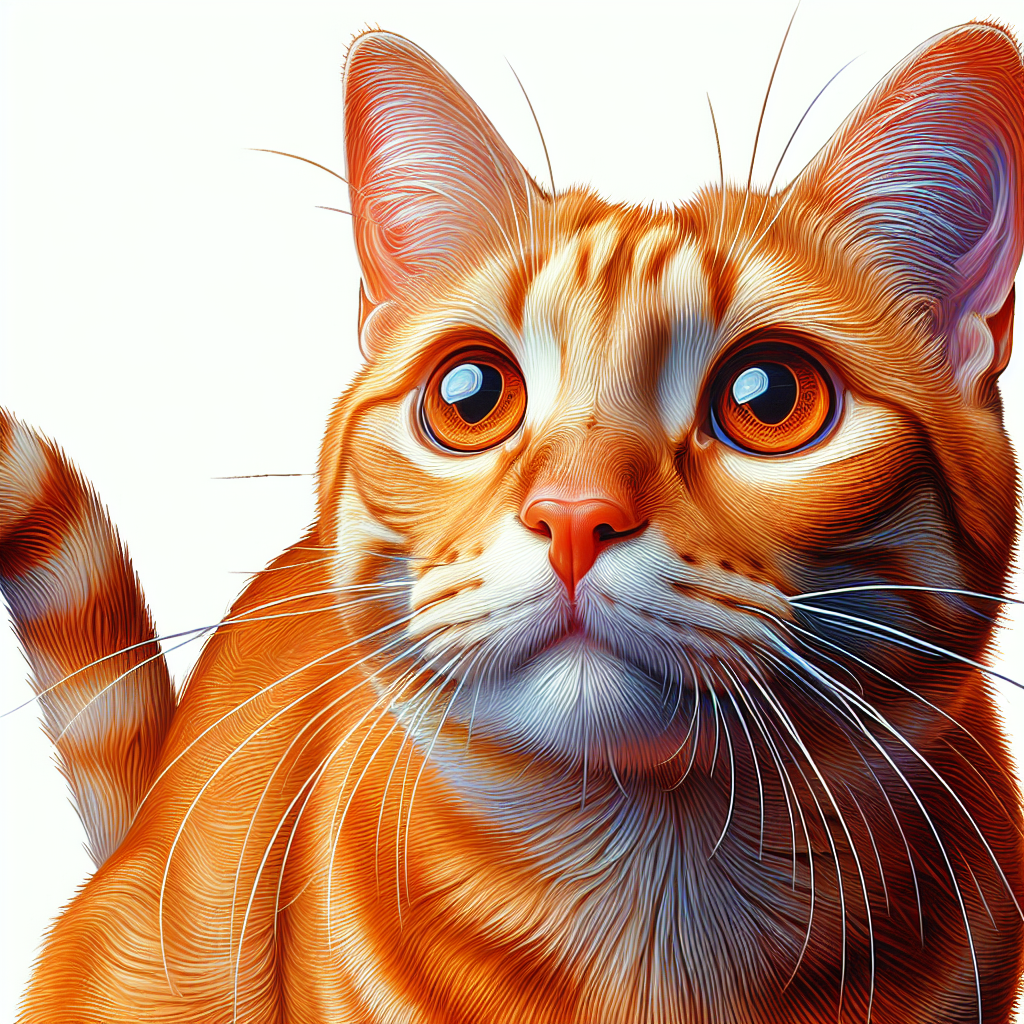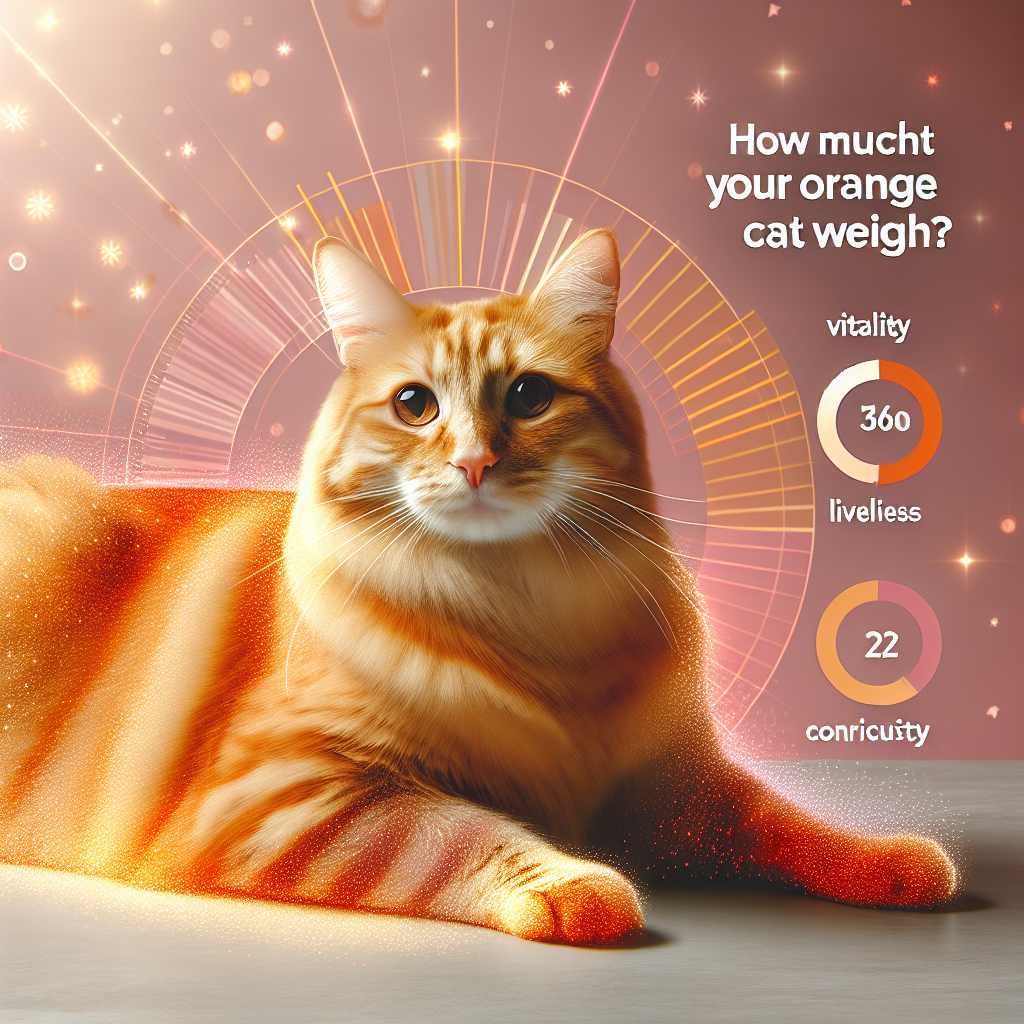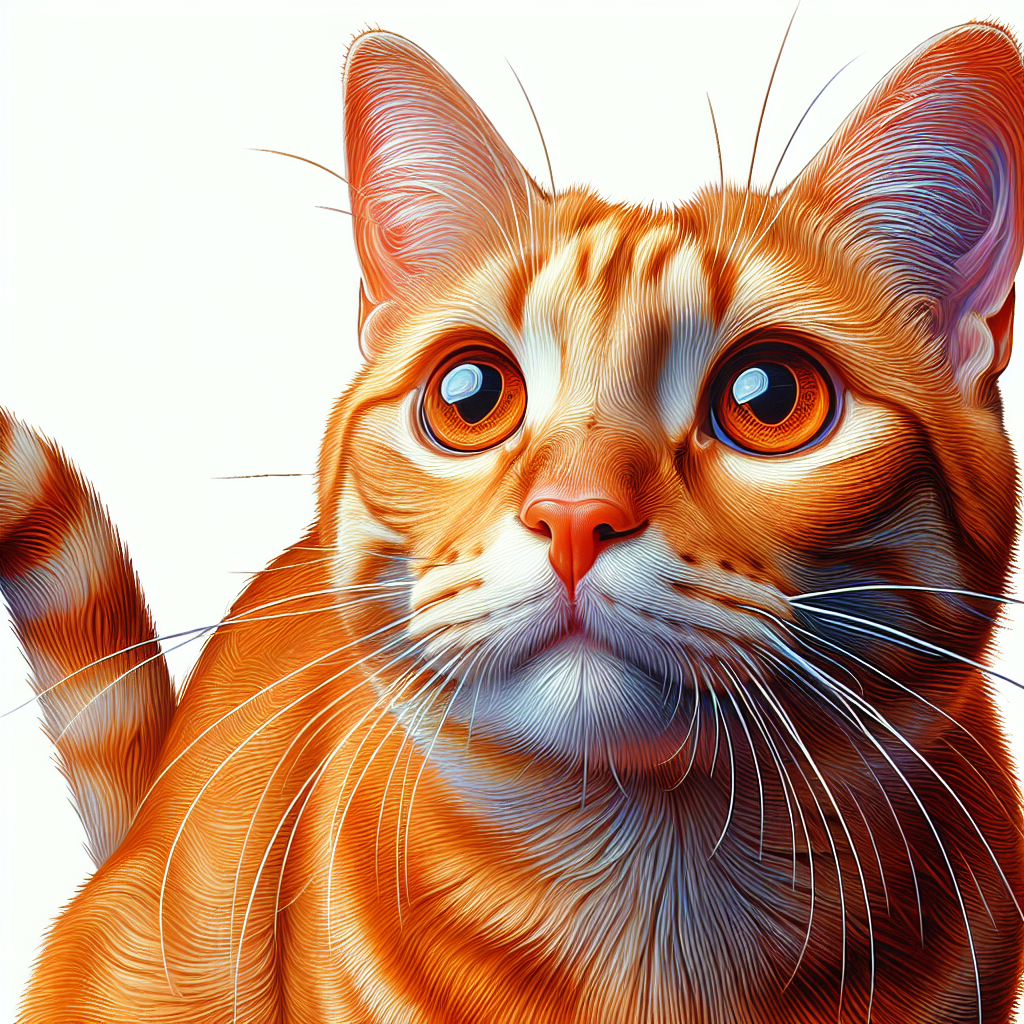So, you’ve got yourself an adorable orange tabby cat, huh? Those furballs are truly a delight to have around! But have you ever wondered how much your furry friend should actually weigh? It’s important to keep an eye on your orange tabby’s weight to ensure their well-being. In this article, we’ll explore the ideal weight range for an orange tabby cat and give you some tips on maintaining a healthy weight for your feline companion. So, let’s get started and make sure your orange tabby is living their best, healthy life!

Factors Affecting the Weight of Orange Tabby Cats
Age
The age of an orange tabby cat can greatly influence its weight. Like all cats, orange tabby cats go through different stages of growth and development. Kittens, for example, tend to be smaller and lighter compared to adult cats. As they grow older, their weight will naturally increase. It is important to keep in mind that the weight of an orange tabby cat will also vary within the same age group due to factors such as genetics and activity level.
Genetics
Genetics play a significant role in determining the weight of an orange tabby cat. Certain genetic factors can contribute to a cat being naturally smaller or larger in size. Kittens with parents who are on the smaller side may tend to be smaller themselves, while those from larger parents may have a higher likelihood of being bigger cats. Understanding your cat’s genetic background can give you a better idea of what to expect in terms of their weight.
Gender
In general, male cats tend to be larger and heavier than female cats. This natural size difference is primarily due to hormonal and physiological factors. Male orange tabby cats are typically more muscular and have a higher muscle mass, which can result in a heavier weight. Female orange tabby cats, on the other hand, tend to be smaller and lighter in comparison. However, it is important to note that there can be variations within each gender, as individual cats may have different genetic makeups and activity levels.
Activity Level
The activity level of an orange tabby cat can significantly impact their weight. Cats that have a more sedentary lifestyle, with limited opportunities for exercise and play, are more likely to gain weight. On the contrary, cats that engage in regular physical activity tend to maintain a healthier weight. It is important to provide ample opportunities for your orange tabby cat to stay physically active, whether it be through interactive toys, climbing structures, or regular playtime.
Ideal Weight Range for Orange Tabby Cats
Kittens
For orange tabby kittens, the ideal weight range can vary depending on their age. During the first few weeks after birth, it is normal for kittens to be quite small, with weights ranging between 85-115 grams. As they grow older, their weight should gradually increase. By around 12 weeks, an orange tabby kitten should weigh approximately 1.8-2.5 pounds (0.8-1.1 kilograms). It is important to consult with your veterinarian during this stage to ensure that your kitten is growing and gaining weight within a healthy range.
Adult Cats
Once orange tabby cats reach their adult stage, the ideal weight range will vary depending on their gender, genetics, and activity level. On average, male orange tabby cats can weigh between 10-16 pounds (4.5-7.3 kilograms), while female orange tabbies tend to weigh between 8-12 pounds (3.6-5.4 kilograms). However, it is essential to remember that individual cats may fall outside of these ranges and that a healthy weight is determined by various factors, including body composition and overall health.
Senior Cats
As orange tabby cats age, their weight may fluctuate due to various factors such as changes in metabolism, activity level, and overall health. Senior cats may experience a decline in muscle mass and an increase in body fat, leading to weight gain. However, it is important to monitor their weight closely to ensure that they stay within a healthy range. Discussing any changes in weight with your veterinarian can help you address any potential health issues and make necessary adjustments to their diet and exercise routine.
Health Issues Related to Weight
Underweight
Being underweight can be a cause for concern in orange tabby cats. It may indicate underlying health issues such as malnutrition, parasites, dental problems, or gastrointestinal disorders. Cats that are underweight may have a lack of energy, a dull coat, and reduced muscle mass. If you notice that your orange tabby cat is underweight, it is crucial to consult with your veterinarian to determine the underlying cause and develop a plan to address their nutritional needs and overall health.
Overweight
Orange tabby cats who are overweight are at risk of developing various health problems. These may include diabetes, heart disease, joint issues, and respiratory problems. Overweight cats are also more prone to skin problems and may have difficulty grooming themselves properly. If you notice that your orange tabby cat is carrying excess weight, it is important to consult with your veterinarian to develop a weight management plan that includes dietary adjustments and increased physical activity.
Obesity
Obesity is a severe health issue that can have a significant impact on an orange tabby cat’s overall wellbeing. Cats that are obese have an excessive accumulation of body fat, which puts strain on their organs and joints. Obesity can lead to serious health complications, including diabetes, arthritis, and hepatic lipidosis. Seeking guidance from your veterinarian and implementing a comprehensive weight loss plan is crucial for obese cats. This may involve dietary changes, portion control, increased exercise, and ongoing monitoring to ensure progress and maintain a healthy weight.
Monitoring and Managing Your Cat’s Weight
Regular Check-ups
Regular veterinary check-ups are essential for monitoring your orange tabby cat’s weight and overall health. During these appointments, your veterinarian can assess your cat’s body condition and weight, address any concerns, and provide guidance on proper nutrition and weight management. These check-ups also offer an opportunity to discuss any changes in your cat’s behavior or appetite that could be related to their weight.
Proper Nutrition
Providing your orange tabby cat with a balanced and appropriate diet is crucial for maintaining a healthy weight. Choose a high-quality cat food that is specifically formulated to meet the nutritional needs of adult cats or kittens, depending on their age. Consider factors such as their activity level, weight goals, and any dietary restrictions or sensitivities. Consulting with your veterinarian can help you determine the right type and amount of food to ensure your cat receives proper nourishment while managing their weight effectively.
Exercise and Play
Regular exercise and playtime are vital for keeping your orange tabby cat physically active and maintaining a healthy weight. Interactive toys, scratching posts, and climbing structures can encourage movement and play. Allocate time each day for interactive play sessions with your cat using toys that engage their natural instincts. Additionally, providing environmental enrichment, such as puzzle feeders or hiding treats, can encourage mental stimulation and physical activity.
Weight Management Tips
Managing your orange tabby cat’s weight requires commitment and consistency. Here are some tips to help you along the way:
-
Measure food portions: Use a measuring cup to ensure that you are providing the correct portion size for your cat’s weight and life stage. Avoid free-feeding or leaving food out all day, as this can lead to overeating.
-
Minimize treats and extras: Limit the number of treats and extras you give your cat, as these can contribute to weight gain if not properly regulated. Opt for healthy and low-calorie treat options or use a portion of their daily food allowance as treats.
-
Encourage active play: Engage your cat in regular interactive play sessions to promote exercise and keep them mentally stimulated. Use toys that encourage chasing, pouncing, and jumping to mimic their natural hunting instincts.
-
Gradual weight loss: If your cat needs to lose weight, it is important to do it gradually. Rapid weight loss can be detrimental to their health. Consult with your veterinarian to determine a safe and realistic weight loss plan.
-
Monitor progress: Keep a record of your cat’s weight and body condition over time to track their progress. Regularly assess their body condition by feeling their ribs and waistline to ensure they are maintaining a healthy weight.
By incorporating these practices into your daily routine and staying attentive to your orange tabby cat’s weight and overall well-being, you can help them maintain a healthy weight and live a long, happy life. Remember, if you have any concerns or questions about your cat’s weight, consult with your veterinarian for personalized advice and guidance.


